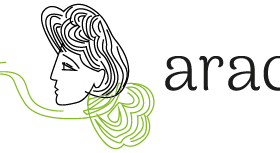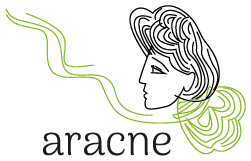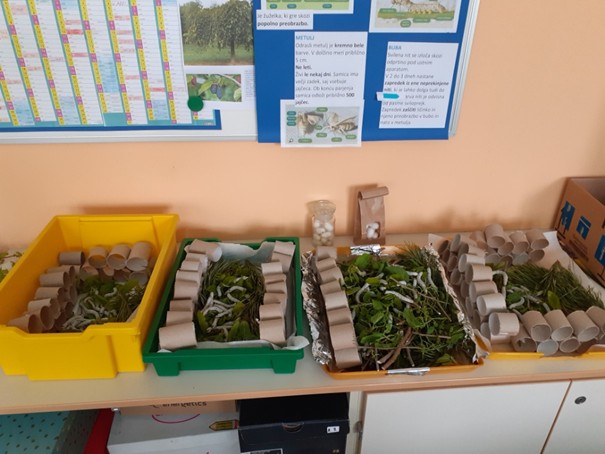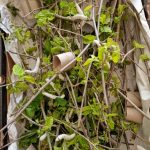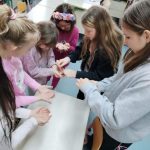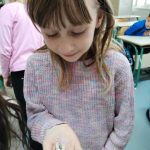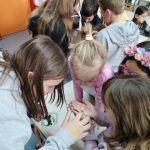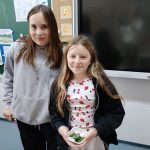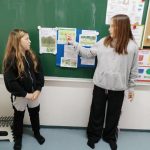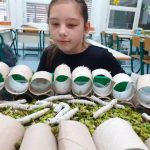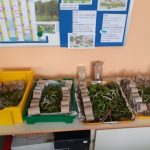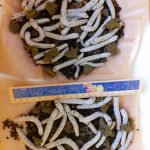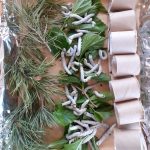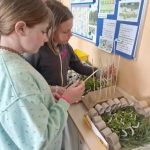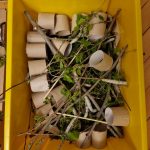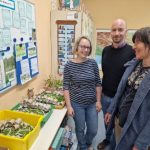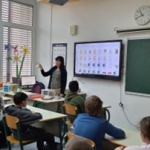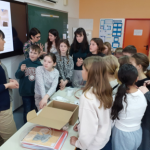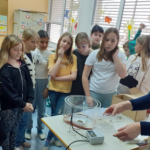In the spring of 2025, an exceptional learning experience came to life at Franc Lešnik Vuk Primary School in Slivnica. Under the mentorship of their class teacher, Karmen Jezernik, the 5. A class of pupils independently carried out the rearing of as many as 120 silkworms, from tiny larvae to silk cocoons. The project was implemented in cooperation with the Faculty of Agriculture and Life Sciences of the University of Maribor, which included the school as a pilot institution within the European project ARACNE (Advocating the Role of Silk Art and Cultural Heritage at National and European Scale), aimed at researching and preserving sericulture in the European area.
On March 14, 2025, the school received a didactic silkworm-rearing kit developed by the CREA (Consiglio per la Ricerca in Agricoltura e l’Analisi dell’Economia Agraria) from Padua (Italy). Already in the first week, the first larvae hatched from the eggs, and the students enthusiastically began feeding them, observing their growth and recording their individual developmental stages and took care of intermediate moulting. From the first to the fourth stage, they used specially formulated artificial diet instead of fresh mulberry leaves, designed specifically for classroom rearing. In the final, fifth stage of development, the caterpillars were fed with leaves collected from the mulberry collection of the Faculty of Agriculture and Life Sciences.
The pupils took care of the silkworms with great responsibility and curiosity. They fed the silkworms several times a day, monitored their growth, and recorded weight gains as well as changes during their metamorphosis into moths. Through this process, they learned about the life cycle of butterflies and gained hands-on experience in rearing silkworms.
Additionally, they explored the history of sericulture in Slovenia and its rich intangible heritage. As part of the program, the pupils were divided into smaller groups to prepare presentations for other classes at the school. In the first week of May, they successfully produced cocoons of all the silkworms and learned about the various uses of silk in creating innovative and sustainable products.
As part of the programme, the pupils also symbolically planted a white mulberry tree with dark fruits in the school yard, which they received as a gift of cooperation from the Faculty of Agriculture and Life Sciences of the University of Maribor. In the coming years, they will learn about the diverse uses of its leaves, fruits, and bark.
The programme provided pupils with an experience that combines natural science content, cultural heritage, practical research, and care for living creatures. Through hands-on work, they developed respect for the life cycle of silkworms, patience, and curiosity.
Franc Lešnik Vuk Primary School has thus joined the wider consortium of schools involved in the educational programme of the ARACNE project.
More information about educational activities is available at: https://aracneproject.eu/teacher-area/.
Andreja Urbanek Krajnc, dr. Mario Lešnik, Tina Lešnik
Faculty of Agriculture and Life Sciences, University of Maribor
